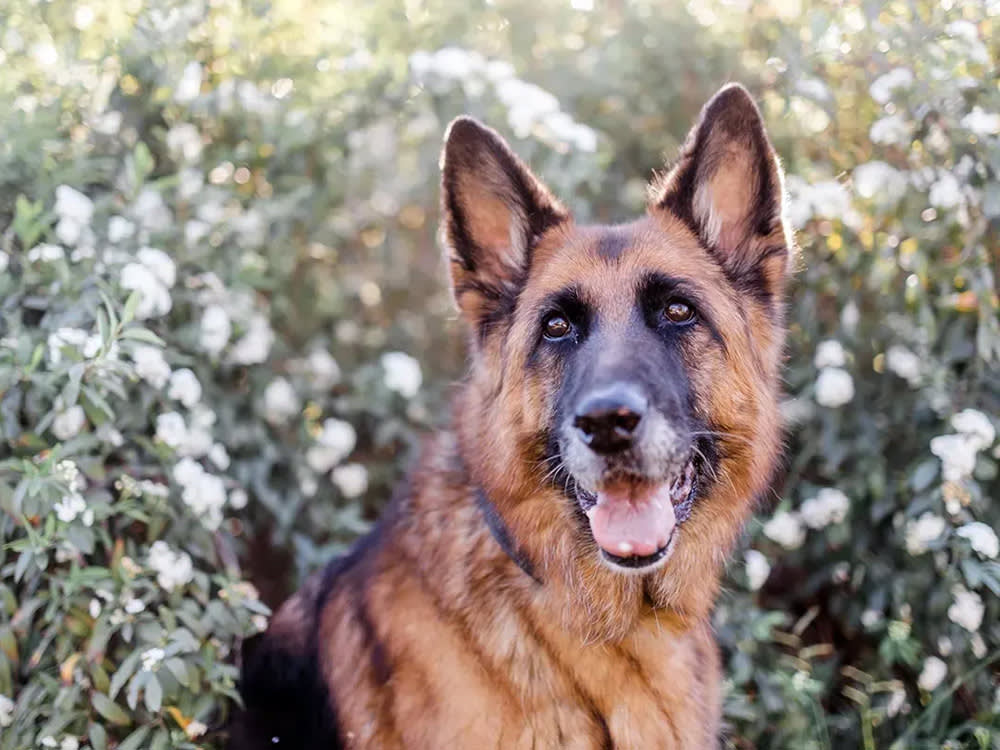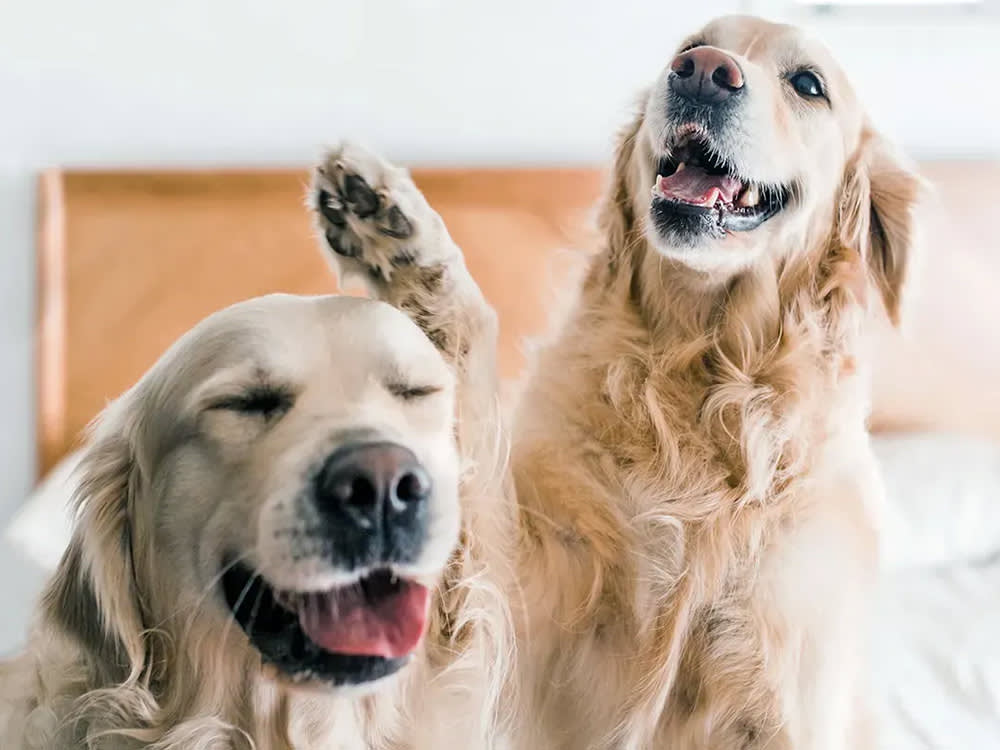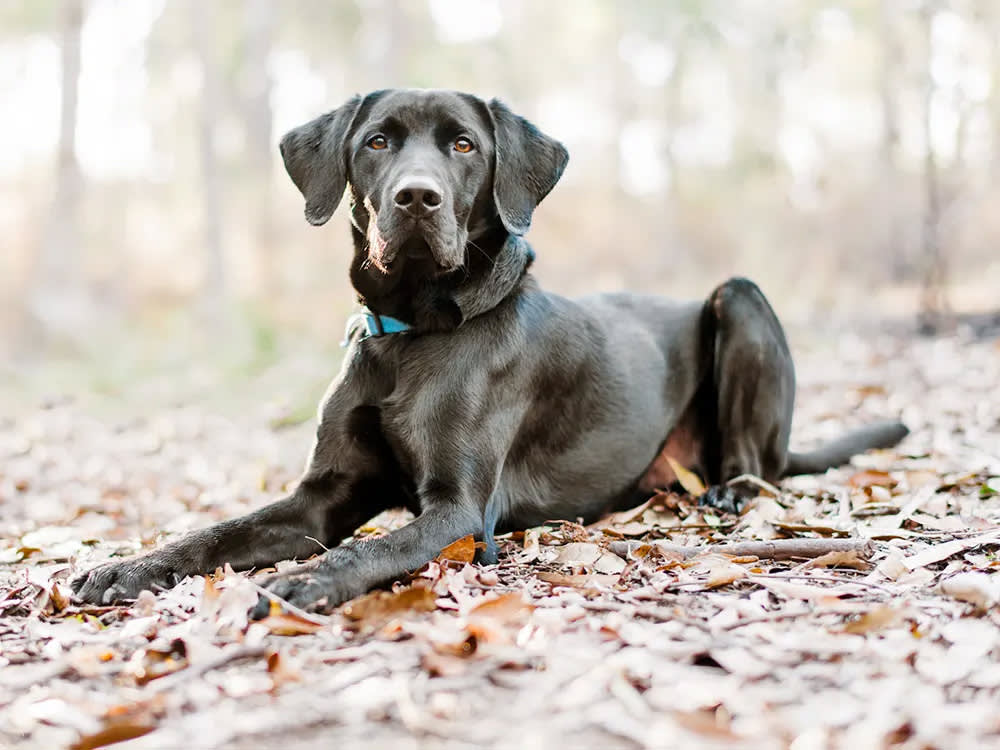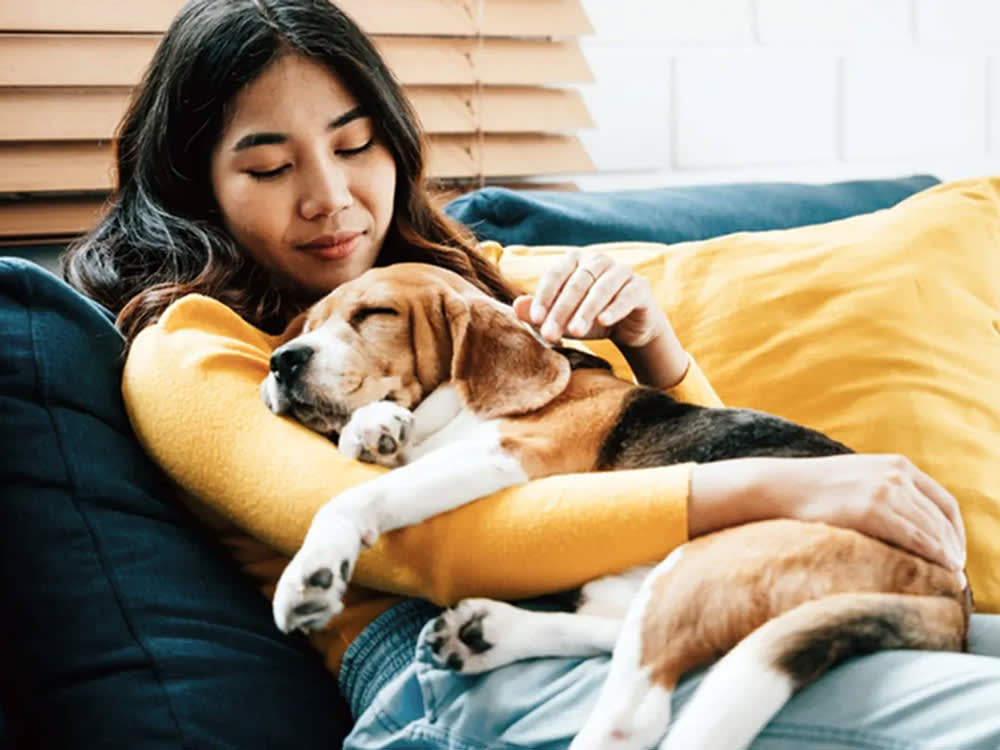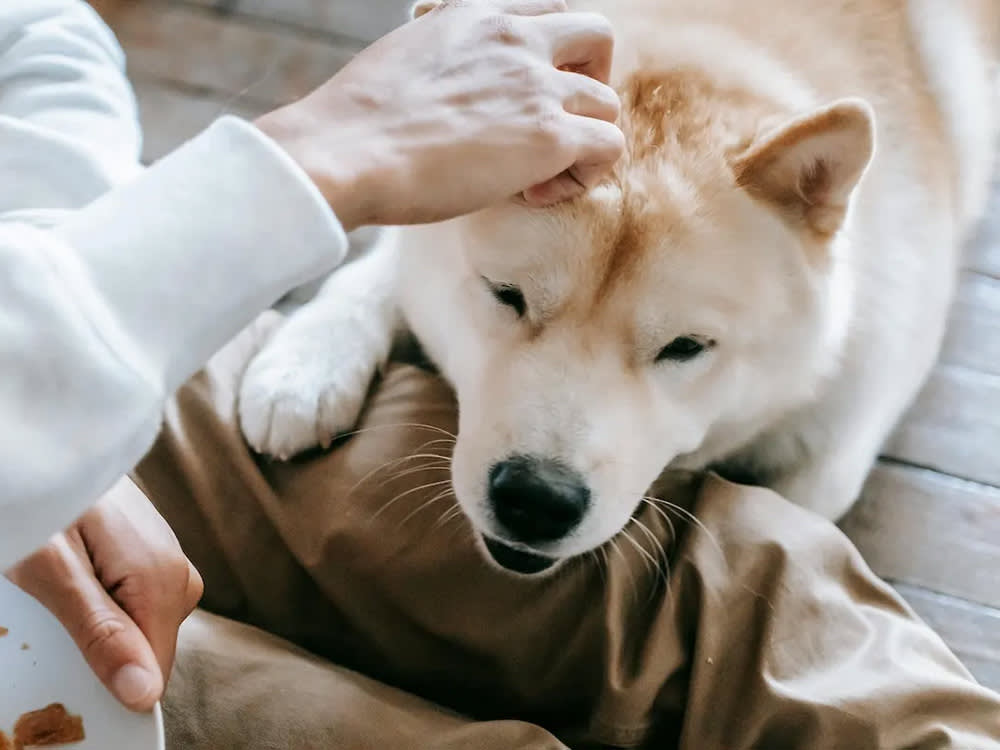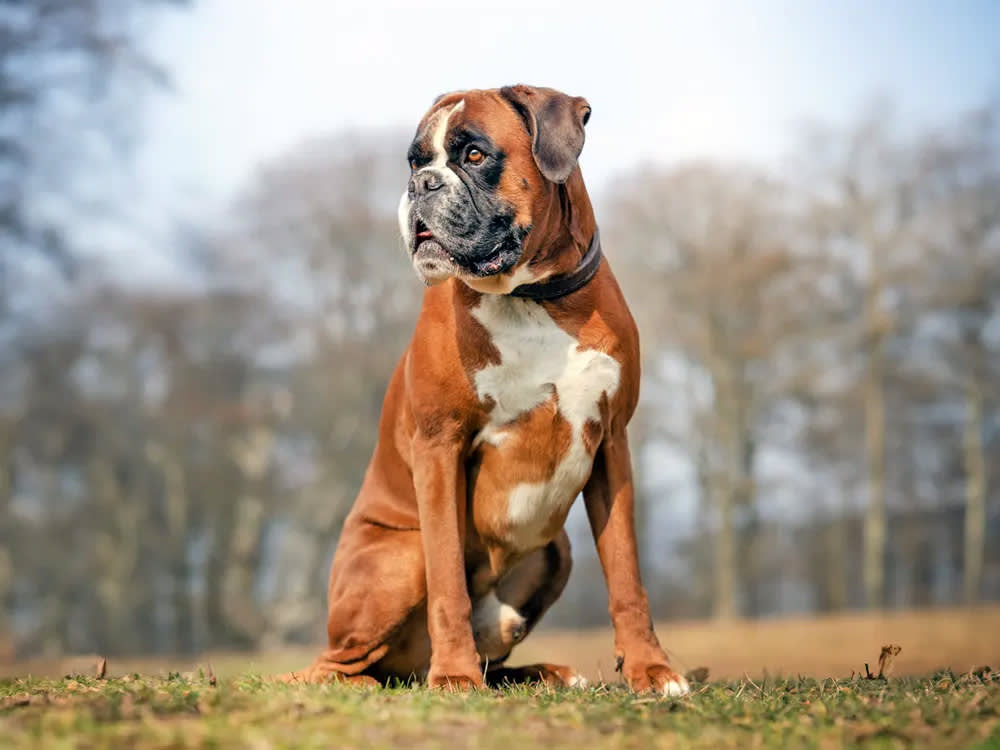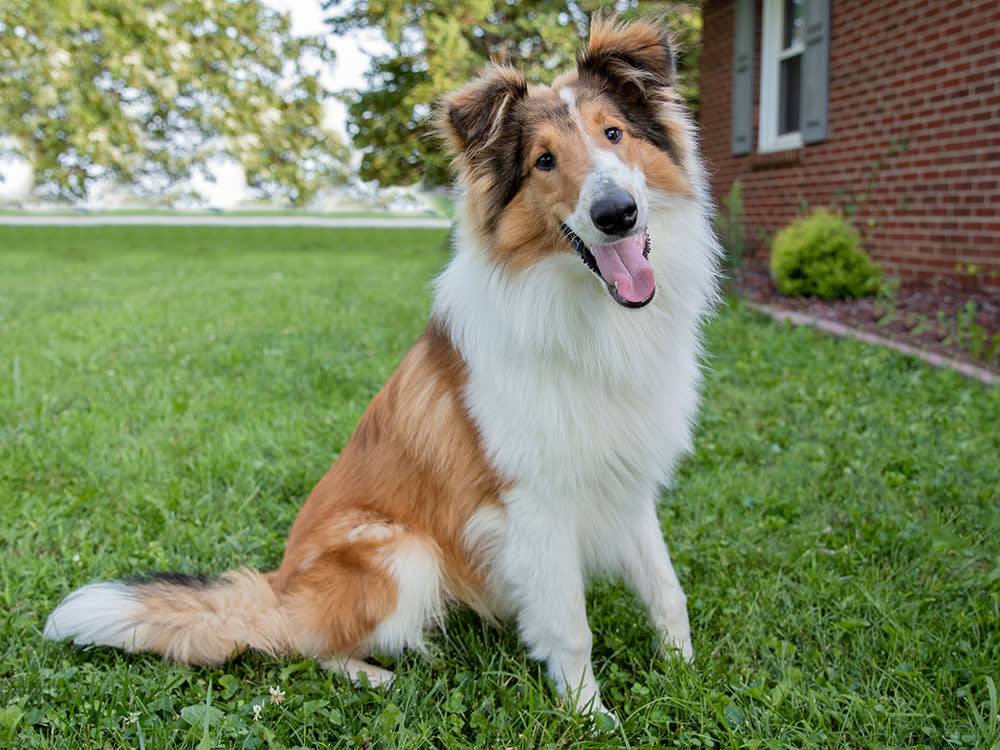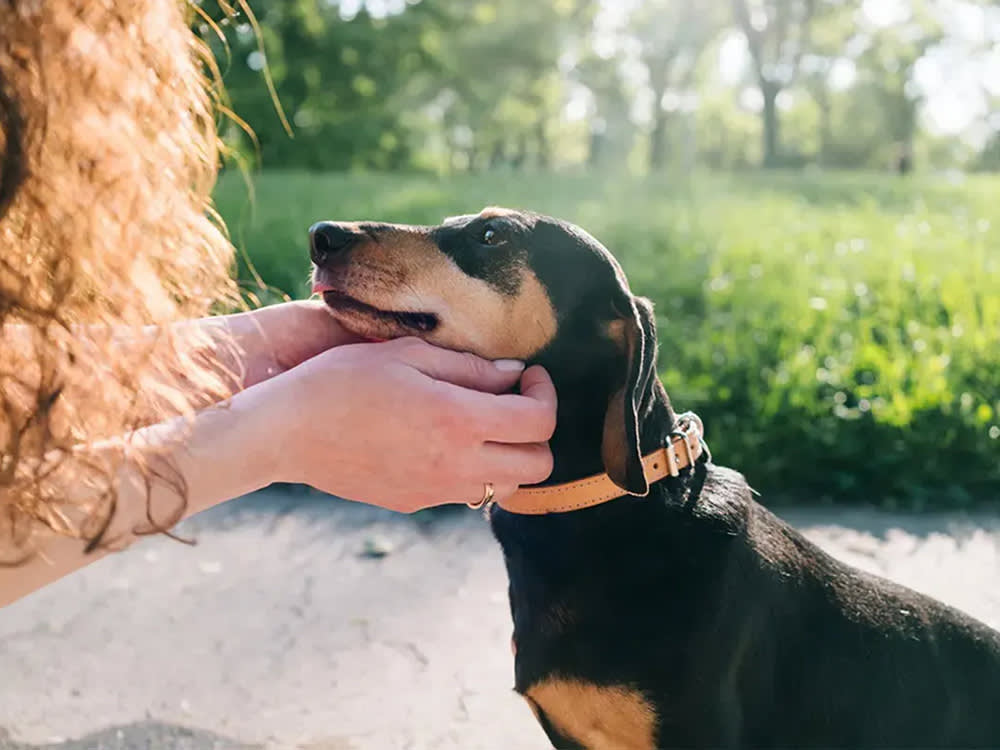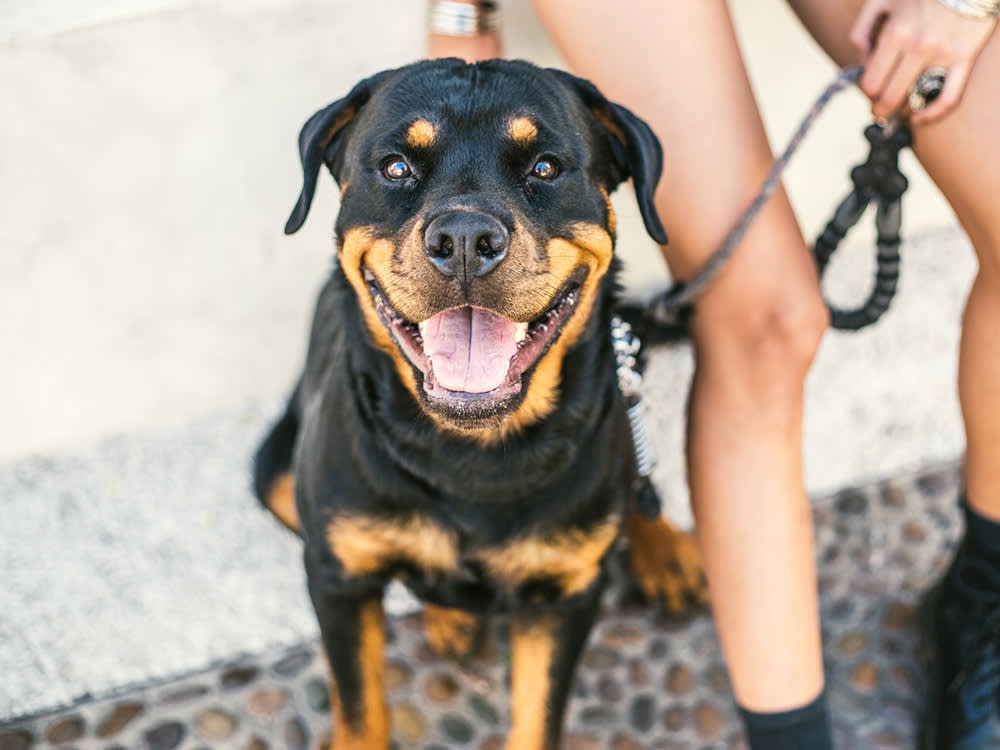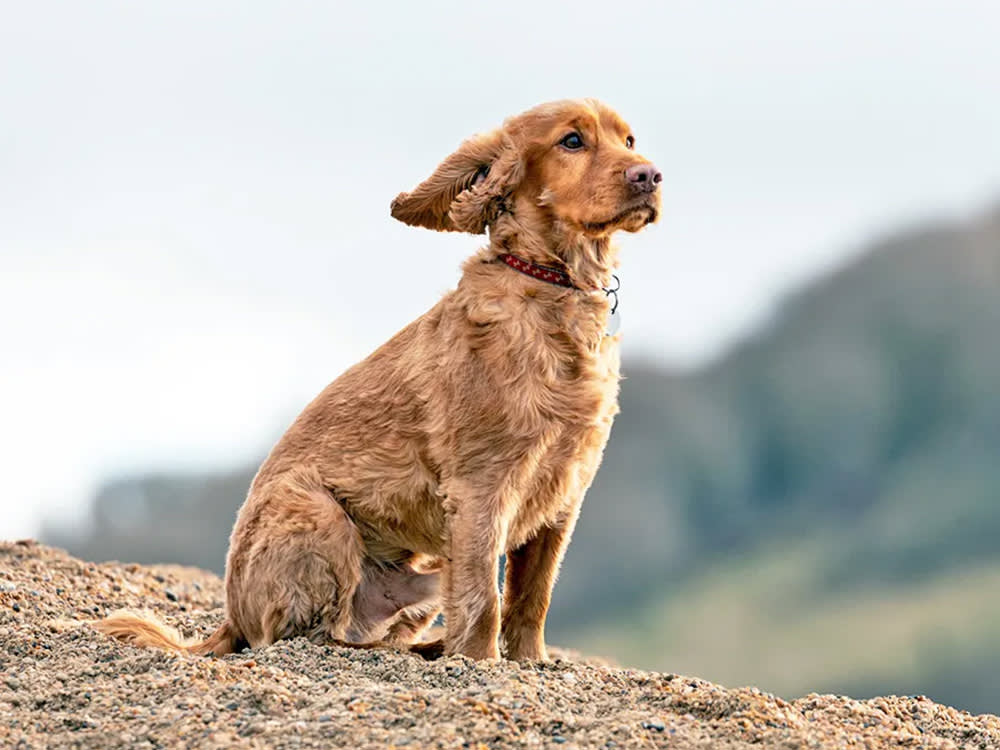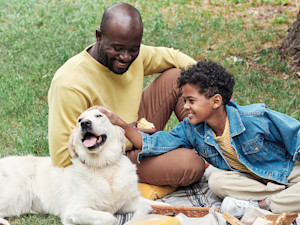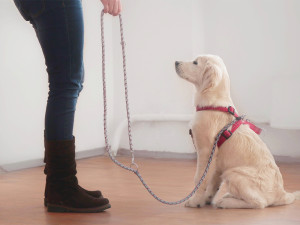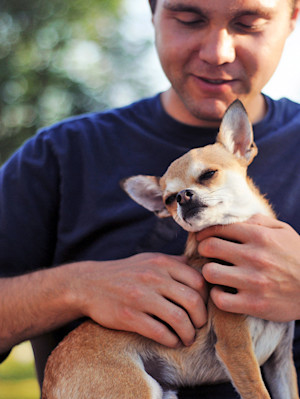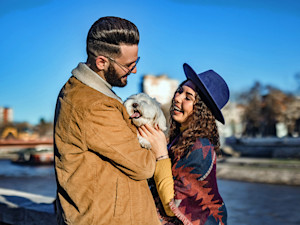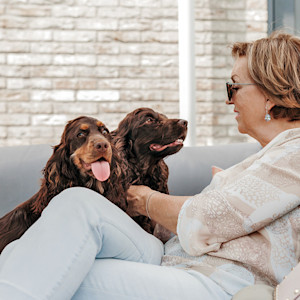What Are the Most Loyal Dog Breeds?
Even though we know your pup is high on the list, too.
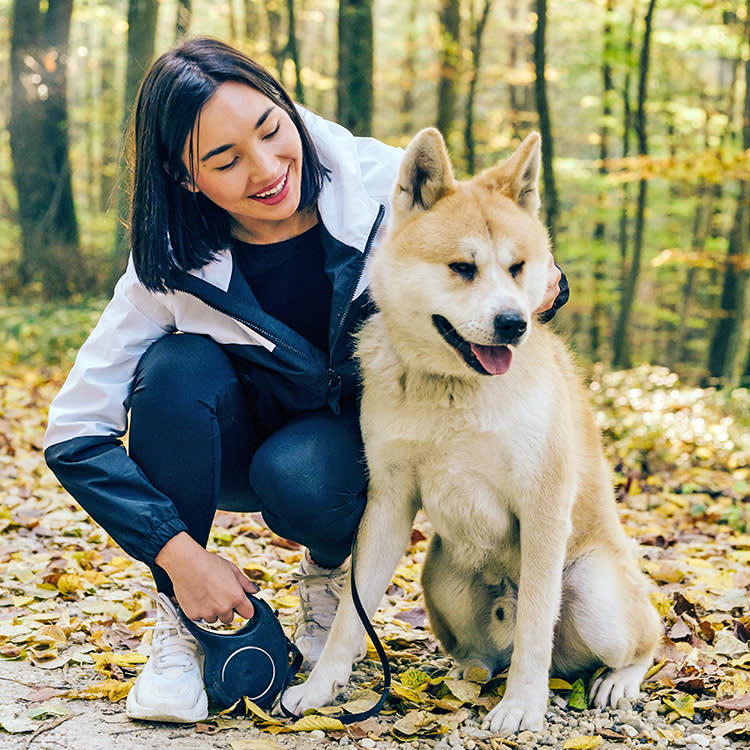
Share Article
In This Article:
Understanding Canine Loyalty Top 10 Most Loyal Dog Breeds How To Foster More Loyalty In Any Dog Breed Frequently Asked Questions
Both my dogs have their own way of showing loyalty, whether that’s sitting by my desk during the day or curling up on the pillow next to me at night. Lilac, a Australian Cattle Dog mix, is so loyal she’s been nicknamed “the hound that sticks around.”
When Lilac’s littermate, Willy, runs into the woods, Lilac might follow him a short distance but always stops and looks at me as if to say, “I’m not running away.” Dogs demonstrate loyalty by following you around the house or the yard, seeking physical closeness, looking to you for guidance and seeming particularly attuned to your moods.

Understanding canine loyalty
Paige Gordon, a certified professional dog trainer at SpiritDog Trainingopens in new tab, has worked with dogs in animal shelters, at detection-dog training facilities, boarding kennels, and daycares.
“Dogs tend to be very loyal to their owners,” she says. “Breeds can be loyal to their family, as in their ‘pack,’ or one person.” Or they can be like Labrador Retrievers and Golden Retrievers, who may never have met you but clearly adore you at first sight.
While loyalty isn’t necessarily breed-specific — it’s about a relationship between a dog and a person built on trust, consistency and care — there are breeds whose loyalty is more demonstrated.
Top 10 most loyal dog breeds
Dr. Nita Vasudevan, a veterinarian at Embrace Pet Insuranceopens in new tab, sees many breeds in her practice and promotes strengthening the human-animal bond. “Certain breeds bond with their humans — not just with affection but with fierce loyalty and protectiveness,” Dr. Vasudevan says. “While any individual dog can be incredibly devoted, some breeds are wired to put their people first, even in dangerous situations.”
German Shepherd
German Shepherds are intelligent, highly trainable and naturally protective, Dr. Vasudevan says. They form strong bonds with their people and often work in roles where their loyalty is tested — like police and military service. “It’s not just training — they want to defend their person,” she says.
Golden Retriever
“Goldens” as they’re known, are the ones who profess love at first sight when they’ve never met you. They’re people-oriented, thrive on companionship and form deep attachments with their family. They’re infinitely eager to please and responsive to training, which only strengthens their bond with their people. Because they’re such good all-around companions, Goldens bridge the divide for couples with different tastes in dogs.
Dr. Carly Fox, the senior veterinarian for emergency and critical care service at Schwarzman Animal Medical Centeropens in new tab in New York City, describes Goldens as universally loyal. “They are less guard-oriented, and [they’re] eager to please.”
Labrador Retriever
“Labs” are bred for retrieving and assisting hunters. They have a strong pack drive and a strong social instinct to work in partnership with their family or handler, a trait that’s suited to service dog work. Labs are excitable — they love to play — but they’re also steady, adaptable and dependable, making them able to stay by your side in chaotic situations. For that reason, they also make the list of the best family dogs.
“Similar to Goldens, they are also very loyal and family-oriented,” Dr. Fox says. “They are sweet, energetic dogs who love making new friends.”
Beagle
Beagles, too, have a strong pack mentality that comes from being bred to hunt in packs. They’ll enthusiastically follow a scent in the woods but, when they return, they’ll show deep attachment to their pack with a watchful and present attitude. Fortunately, that loyalty doesn’t translate to aggression, Dr. Fox says, and they’re very friendly dogs.
Akita
Akitas are quiet, dignified, and incredibly devoted, Dr. Vasudevan says. Originally bred to guard royalty in Japan, they’re naturally wary of strangers but gentle and loyal to their inner circle. The l egendary Akitaopens in new tab, Hachikō, waited every day for nine years at a train station for his deceased human — a real-life example of deep loyalty that inspired the saddest movie I’ve ever seen, Hachi: A Dog’s Tale.
Boxer
Boxers were bred as guard dogs, so they’re naturally protective of their humans. They stay close to you and will readily put themselves between you and a perceived threat. Dr. Fox, who’s lived with three Boxers, says they’re loyal family dogs who warm up to strangers once they feel comfortable. “These dogs can be goofy and playful,” she says.
Collie
There’s a reason the classic movie “Lassie” made collies the poster breed for loyalty, Dr. Fox says. Bred as herding dogs, they’re hard-wired to watch over their “flock.” “These dogs love their families and are typically deeply committed. Overall, they are patient, tolerant and emotionally attuned,” Dr. Fox says.
Dachsund
Originally bred to hunt badgers, Dachsunds are fearless little dogs affectionately called “wiener dogs” because of their long, thick bodies and short legs. They tend to form a strong attachment with one or two people, Dr. Fox says. “They can be spunky and bark at strangers but are often not overly aggressive,” she says. Because of their size, they’re among the breeds that thrive in small spaces and can often be seen trotting down city streets. As one of the breeds with the longest lifespan, Dachsunds can be your loyal companion for up to 16 years.
Rottweiler
While Rottweilers are often misunderstood, they’re incredibly loyal and affectionate with their families, says Dr. Vasudevan. “A well-bred and well-socialized ‘Rottie’ is calm, confident and naturally protective,” she says. “They’ll think nothing of putting themselves in harm’s way if their loved ones are threatened.”
Cocker Spaniel
Cockers Spaniels were bred as hunting companions, so being close to people is deeply ingrained.
Their loyalty is quiet and gentle — they thrive on cuddles and closeness, often shadowing their favorite human. That sense of partnership is reinforced by an intelligence and receptivity to training. “These dogs love companionship and are gentle and playful,” Dr. Fox says. “They love their family members and enjoy being part of daily family activities.”
How to foster more loyalty in any dog breed
Dogs bred for guarding and protection tend to be more loyal to humans but loyalty can be fostered in any dog — no matter the breed. To encourage loyalty, Dr. Fox recommends spending quality time with your dog. “This should be a combination of casual, passive time — like sitting on your couch and going for walks and active time like positive training, and mental and physical enrichment,” she says. “Meeting your dog’s daily needs and establishing a solid routine also helps foster loyalty.”
Be consistent, especially with new dogs who can benefit from 30 minutes a day of training. Research your dog’s biggest need according to their breed and plan activities accordingly.
Bottom line
Gordon says anyone can nurture a great bond with a dog as they grow and experience life together. “All of our dogs have a lot of potential to be exactly what we need,” she says.
FAQs
Are loyal dog breeds good with children?
Some of the same breeds listed as the best family breeds are also the most loyal. They include Goldens, Labs and Collies. Gordon says loyal dog breeds and breeds developed for companionship tend to be great with children, though it’s important never to assume a dog will know what to do when kids are around.
“We have to teach our dogs and our kids appropriate interactions so nobody gets knocked over and no tails get pulled or eyes poked,” she says. “When researching a breed for your family, it is important to take into account the breed’s development, what they were bred for, your family’s needs and activity levels and schedules, and things like grooming maintenance and health.”
Dr. Fox notes that loyal dog breeds can be good with children, but more so with children who live in the same home.
Do loyal dog breeds require special training or care?
Because of their desire to please, dogs that are bred to be loyal and protective can develop antisocial tendencies towards other people or animals. Dr. Fox cautions pet parents to watch for behaviors like guarding and aggression towards others. “In order to help avoid these behaviors, early training, socialization, protective instinct management and enrichment is ideal,” she says. Loyal breeds can also experience separation anxiety. For that reason, it’s important to socialize them in a variety of situations and discourage their Velcro-like tendencies with crate training and “ stay” training.
How do loyal dog breeds typically behave with strangers?
Breeds that are loyal to their families or an individual will not necessarily interact the same way with a stranger, Gordon warns. “This comes down to the dog’s individual personality, experiences and some of their genetic makeup. A Doberman would not want to make friends with a strange man they meet walking alone at night but a Beagle would,” she says.
Dr. Fox says a dog’s response to strangers has to do with their temperament and training. “Some dogs will be reserved but polite with strangers, others can be overly attached to their families and be outwardly aggressive toward strangers, and some can be extremely sweet and friendly,” she says.
Be aware of your breed’s radar for “stranger danger” and socialize them accordingly or work with a trainer to develop a command in the event a stranger is actually threatening you.
What loyal dog breeds are bred for protection?
Dobermans are alert, loyal and bred specifically for protection. “When raised with proper socialization, they’re affectionate and deeply bonded to their family,” Dr. Vasudevan says. “Their natural instinct to guard makes them one of the breeds most likely to step in during a threat without hesitation.” Another working breed used in military and police work is the Malinois, who is courageous, smart and loyal to a fault. “These dogs don’t just follow commands — they thrive on protecting their handler. They’re not for everyone, but in the right hands, their devotion runs deep,” Dr. Vasudevan says.
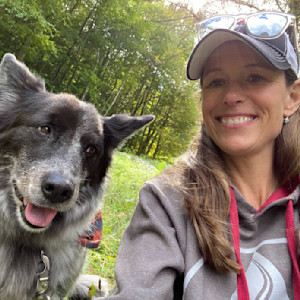
Catherine Fahy Green
Catherine Fahy Green is a journalist turned copy and content writer. As a pets writer, she focuses on and is fascinated by animal body language because there's so much to learn from and about animals by spending time in their presence and observing their physical cues.
Her work as a PR specialist appears in national trade media as press releases and stories about exciting new products people should try. She lives with her family in Western Massachusetts, where she listens closely to the stories her two dogs, flock of chickens, and four horses tell her. She spends her weekends at horse shows with her daughter.
Related articles
![Father and son have a picnic with their Lab dog.]()
The Best Dog Breeds for Families
Remember: You can find just about any breed you want at a rescue.
![a dog held on a leash sits calmly]()
Dogs Who Are Easy to Train: Top 10 Easiest Dogs to Train
Spoiler: It’s not about the breed. But these pups are pretty brainy.
What are Low-Maintenance Dog Breeds for First-Time Pet Parents?
Any of these breeds are a great option for adoption.
![Man hugging his cute Chihuahua dog.]()
10 Dog Breeds with the Longest Lifespans
Because we all wish our pets could live forever.
![Couple smiling and holding their small fluffy dog.]()
Best Dog Breeds for First-Time Pet Parents
Please remember to look at shelters and purebred rescues for your dream pup.
![Two cocker spaniel dogs sitting on the garden sofa with a senior woman.]()
Best Dogs for Seniors: What Characteristics Match Your Lifestyle?
The right rescue pup is out there.

